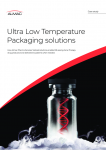US FDA warns patients off all products from Texas compounding pharmacy

The Food and Drug Administration first ordered NuVision to withdraw all its sterile products in 2013 following an inspection that raised serious concerns about aseptic practices.
The compounding pharmacy did not comply and failed a second inspection in July 2014.
This month, the FDA issued a warning directly to consumers “due to the seriousness of this situation” and told Downing Labs, which bought NuVision in January 2014, that “failure to recall the [2013] products, and the recent evidence of sterility failures at the Downing Labs facility suggests that although you continue to produce drugs at the facility, you have not corrected the problems identified in 2013.”
The FDA said “given the high rate of contamination, there is a high probability that contaminated units from other purportedly sterile drug product lots produced at the Downing Labs facility are currently in distribution,” and it had “serious concerns” about the site’s practices.
Un-sterile injectables
In a letter to Downing, the FDA set out the poor conditions and lack of sterility control it observed during its 2014 inspection. These include aseptic processing areas which were not properly monitored for environmental conditions, especially air quality inside its ISO 5 area.
On the FDA’s list of unsafe products were batches of freeze-dried human chorionic gonadotropin (hCG) hormone, folic acid, procaine, magnesium chloride hexahydrate and dexpanthanol.
Compounding the problem
Compounding pharmacies in the US have had a difficult month, with the FDA accusing the Compounding Shop in Florida of using an unauthorised API (active pharmaceutical ingredient), and warning Zion RxFormulation Services its sterile manufacturing process is faulty.
Last week, US law enforcement arrested the compounding pharmacist linked to the 2012 fungal meningitis outbreak which killed 64 US patients. The US Attorney’s Office charged Glenn Chin with supplying steroid methylprednisolone acetate falsely labelled as sterile.
Draft FDA guidance released in July allows compounding pharmacists to voluntarily register as CMOs (contract manufacturing organisations), binding them to the regulatory framework which applies to other outsourcing service providers.
Sarah Sellers, President of drug safety consultancy q-Vigilance, told this publication the new framework was “long overdue” and would contribute to patient safety in the face of “an entrenched, systemic problem” with quality at compounding pharmacies.


















